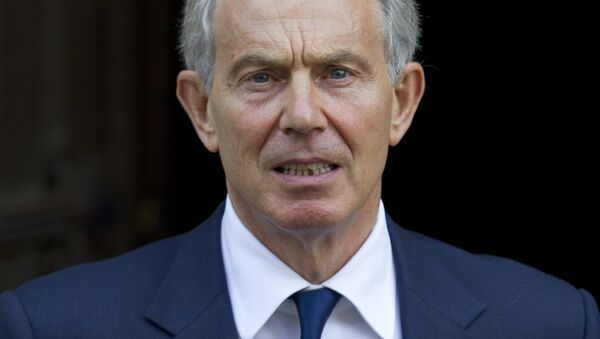Former UN Weapons Inspector Dr David Kelly shot to fame after it was revealed that he was the source for the story that the second dossier on Iraq’s WMD was ‘sexed up’, and that the notorious 45 minute claim probably wasn’t true. Within days he was found dead at Harrowdown Hill, two miles from his home, on July 17, 2003. His death was presumed to be suicide, but rival theories have emerged suggesting he was murdered by British intelligence either as revenge or to stop him from talking.
Bit rich UK gvmt appalled at assassination attempts… I recall UK being complicit in the murder of one of her own, Dr David Kelly. #bbcqt
— Will Rae (@will_rae11) March 8, 2018
An Inconvenient Death
In his new book An Inconvenient Death – How The Establishment Covered Up The David Kelly Affair Miles Goslett investigated the actions of the British government after Kelly was found dead. He wrote, “At the time the Prime Minister, Tony Blair, was on a plane travelling between Washington DC and Tokyo.”
The book goes on, “The Lord Chancellor, Charles Falconer, who was in London, rang Blair on the aircraft's phone within minutes of the body being found and in a surprisingly brief call was instructed to set in motion a full-blown public inquiry into Dr Kelly's death. Falconer established this inquiry several hours before any exact cause of Dr Kelly's death had been determined officially – and, indeed, before the body found that morning had been formally identified.”
Not only is BLiar a war criminal and murderer of our military, he is instrumental in subverting the course of justice
— JohnWA (@Nhojpposlla) March 29, 2018
Did Tony Blair block Dr David Kelly inquest 'within minutes of body being found?' https://t.co/QO03HQ7QAf
Goslett asks why the two most senior political figures of the day would take the unusual step of making snap decisions about an incident that had only just happened. He wrote, “Why were they even involved at such an early stage in what was essentially an incident that was local to Oxfordshire? What was it about the death of David Kelly that had disturbed Falconer and Blair so much that they went on to interrupt and ultimately derail the coroner's inquest, which had been opened routinely? And why were they content to replace that inquest with a less rigorous form of investigation into Dr Kelly's death?”
The Hutton Inquiry
Instead of an inquest, which typically takes months to prepare and is a rigorous examination of what led up to and caused an unusual or violent death, Blair and Falconer instigated the Hutton Inquiry, which opened just 24 days after the body was found and lasted only a few weeks. Hutton’s report was published in January 2004 and concluded that Kelly took his own life.
READ MORE: 'Neocons Were Masterminds' of 2003 Iraq Invasion – Researcher
Goslett’s book highlights numerous problems and limitations of the Hutton inquiry and the ongoing secrecy surrounding Kelly’s death. He identified 22 relevant witnesses who had not given evidence during the inquiry and several suspicious aspects to the case that suggest not just a murder, but a wider conspiracy.
MI5 would never murder anyone in the UK. That's why the medical reports on David Kelly were classified for *70 YEARS*.https://t.co/YAFLOJi2A9
— Politikḗ (@city_affairs) March 14, 2018
Goslett concluded, “It is clear that the Hutton Inquiry was an inadequate substitute for a coroner's inquest into Dr Kelly's death. It raised more questions than it answered… Based on the available evidence, there are too many inconsistencies attached to the official finding of suicide to accept it wholeheartedly.”
READ MORE: The Iraq War 15 Years On: No Body Count, No Accountability, No End in Sight



